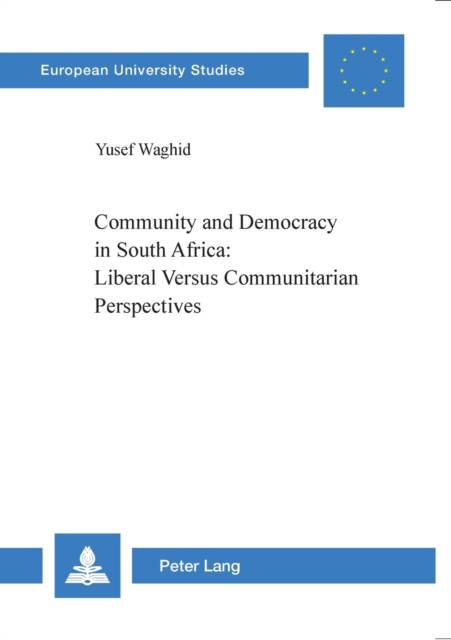
Je cadeautjes zeker op tijd in huis hebben voor de feestdagen? Kom langs in onze winkels en vind het perfecte geschenk!
- Afhalen na 1 uur in een winkel met voorraad
- Gratis thuislevering in België vanaf € 30
- Ruim aanbod met 7 miljoen producten
Je cadeautjes zeker op tijd in huis hebben voor de feestdagen? Kom langs in onze winkels en vind het perfecte geschenk!
- Afhalen na 1 uur in een winkel met voorraad
- Gratis thuislevering in België vanaf € 30
- Ruim aanbod met 7 miljoen producten
Zoeken
Community and Democracy in South Africa: Liberal Versus Communitarian Perspectives
Liberal versus Communitarian Perspectives
Yusef Waghid
€ 169,45
+ 338 punten
Omschrijving
The achievement of democratic forms of government ranging from liberal to communitarian strands has been a major priority for developing countries in their post-colonial histories. South Africa's quest to establish a multi-party democratic system of government has been influenced by liberal and communitarian perspectives of democracy. Yet, the attainment of democracy in South Africa has not been without contradictions, particularly related to majority rule, equality of opportunity, and rights. This book reconstructs a conception of deliberative democracy which can create possibilities for a developing country to deal more adequately with majoritarianism, equalising opportunities, and rights. It makes an argument for a rational, reflexive discourse-oriented procedure of deliberative democracy which cultivates a form of citizenship that recognises the need for citizens to care, reason and engage justly in political conversation with others.
Specificaties
Betrokkenen
- Auteur(s):
- Uitgeverij:
Inhoud
- Aantal bladzijden:
- 208
- Taal:
- Engels
- Reeks:
- Reeksnummer:
- nr. 666
Eigenschappen
- Productcode (EAN):
- 9783039101948
- Verschijningsdatum:
- 15/10/2003
- Uitvoering:
- Paperback
- Formaat:
- Trade paperback (VS)
- Afmetingen:
- 148 mm x 210 mm
- Gewicht:
- 254 g

Alleen bij Standaard Boekhandel
+ 338 punten op je klantenkaart van Standaard Boekhandel
Beoordelingen
We publiceren alleen reviews die voldoen aan de voorwaarden voor reviews. Bekijk onze voorwaarden voor reviews.









